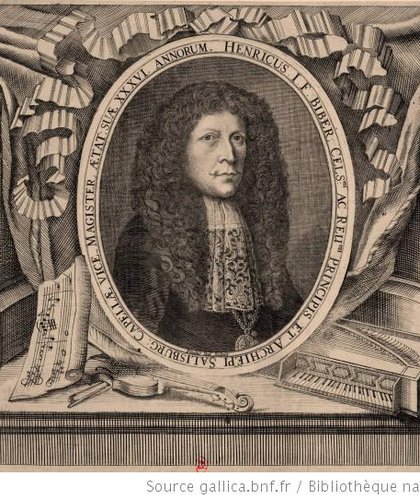
Heinrich Ignaz Franz Biber
Heinrich Ignaz Franz Biber was born in 1644 in Wartenberg, Bohemia. His initial education in music was provided by the local teacher-chorister-organist. As of 1660 he attended the Jesuit college in Troppau (Opava), together with the outstanding figure of Czech Baroque music, Vejvanovsky, and others. His masters included Schmelzer and Bertali, the conductor of the Court in Vienna. In 1680 Biber entered the service of the Bishop of Olomuc, then in 1670 he suddenly left to be employed in Salzburg by the Archbishop of Salzburg. In 1678 he was appointed vice-Kapellmeister, then in 1684, following the death of Andreas Hofer, Kapellmeister, he was appointed as his successor. He had a reputation as a genius violinist, and his compositional oeuvre was also held in a high esteem. In 1690 he was raised to nobility by the emperor, he was appointed as Magister Dapiferorum (Lord Steward). He died on 3 May 1704 and was buried in the St. Peter cemetery in Salzburg. Biber’s compositional output is huge, including, inter alia, two requiems, masses, violin sonatas and table music. His greatest composition is the Missa Salisburgensis á 53 voci, composed in 1682 to celebrate the 1100th anniversary of the founding of the Archbishopric of Salzburg.